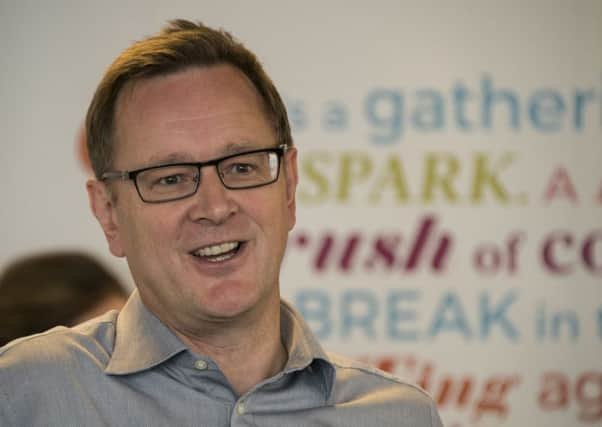Johnston Press agrees £24m deal for i newspaper


Chief executive Ashley Highfield hailed the deal as a “transformational acquisition” for the Edinburgh-based owner of The Scotsman.
The sale was agreed as i owner ESI Media said the print versions of its sister titles, the Independent and Independent on Sunday, are to close, leaving an online-only edition.
Advertisement
Hide AdAdvertisement
Hide AdHighfield said: “i is a highly regarded newspaper with a clear market position and a loyal readership. By joining with Johnston Press the combined circulation will be equal to 9 per cent of national daily circulation, making us the fourth-largest player in the market.
“This enhanced reach represents a significant growth opportunity for Johnston Press in terms of national print and digital advertising revenue. It also rebalances our revenues towards less volatile circulation revenues.”
He added that the takeover of i “will also allow us to grow digital audiences and revenues through the creation of inews.co.uk”.
Steve Auckland, chief executive of ESI Media, said: “We are incredibly proud of the success of i since its launch in 2010. In just five years, i has changed the face of national newspapers, demonstrating that you can innovate in print.”
According to the Audit Bureau of Circulation, the paper – which sells for 40p on weekdays and 50p on Saturdays – has a 20 per cent share of the UK’s “quality” newspaper market.
Johnston Press said the acquisition would create the UK’s fourth-biggest news publishing group, selling the equivalent of more than 600,000 copies a day – predominantly outside London.
ESI Media, owned by the Lebedev family, said the Independent, launched in 1986, will become “the first national newspaper title to move to a digital-only future”. The Independent on Sunday will go online only on 20 March, with the Independent following on 26 March.
The Lebedev family’s other media assets include the London Evening Standard and local television station London Live.
Advertisement
Hide AdAdvertisement
Hide AdIn an email to staff, Evgeny Lebedev said: “We faced a choice: manage the continued decline of print, or convert the digital foundation we’ve built into a sustainable, profitable future. In choosing the latter, we will create 25 new content roles, launch a new subscription mobile app, enhance the redesigned, thriving independent.co.uk, open new editorial bureaux in Europe, the Middle East and Asia, and invest further in our New York-based US operation.
“The planned sale to Johnston Press ensures that i will continue to flourish. Johnston Press will be commendable owners of this great, innovative newspaper.”
He added: “We expect a significant number of employees to move across to Johnston Press under the Transfer of Undertakings (Protection of Employment) Regulations, known as TUPE. A number of employees at Independent Print Limited will be made redundant.”
The National Union of Journalists (NUJ) said the planned closure of the Independent titles was a “massive blow” for the newspaper industry.
National organiser Laura Davison said: “Experienced staff who have been committed to the idea and ideals of the titles, in some cases for decades, are facing losing their jobs in shocking circumstances.
“The public has been robbed of titles whose loss leaves press plurality, opinion and ownership narrowed and diminished. The way staff have had to learn about what’s happening through the pages of other papers is simply appalling. We are calling on the company to enter into urgent talks with the NUJ, to meet their legal obligations and to treat their staff with humanity.”
Johnston Press said the 25-strong i workforce will transfer to it, subject to consultation under TUPE, and editor Oliver Duff will remain with the title.
The group also said it has been “encouraged” by responses after launching a process to explore the sale of a number of brands it has identified as not being part of its “long-term future”.